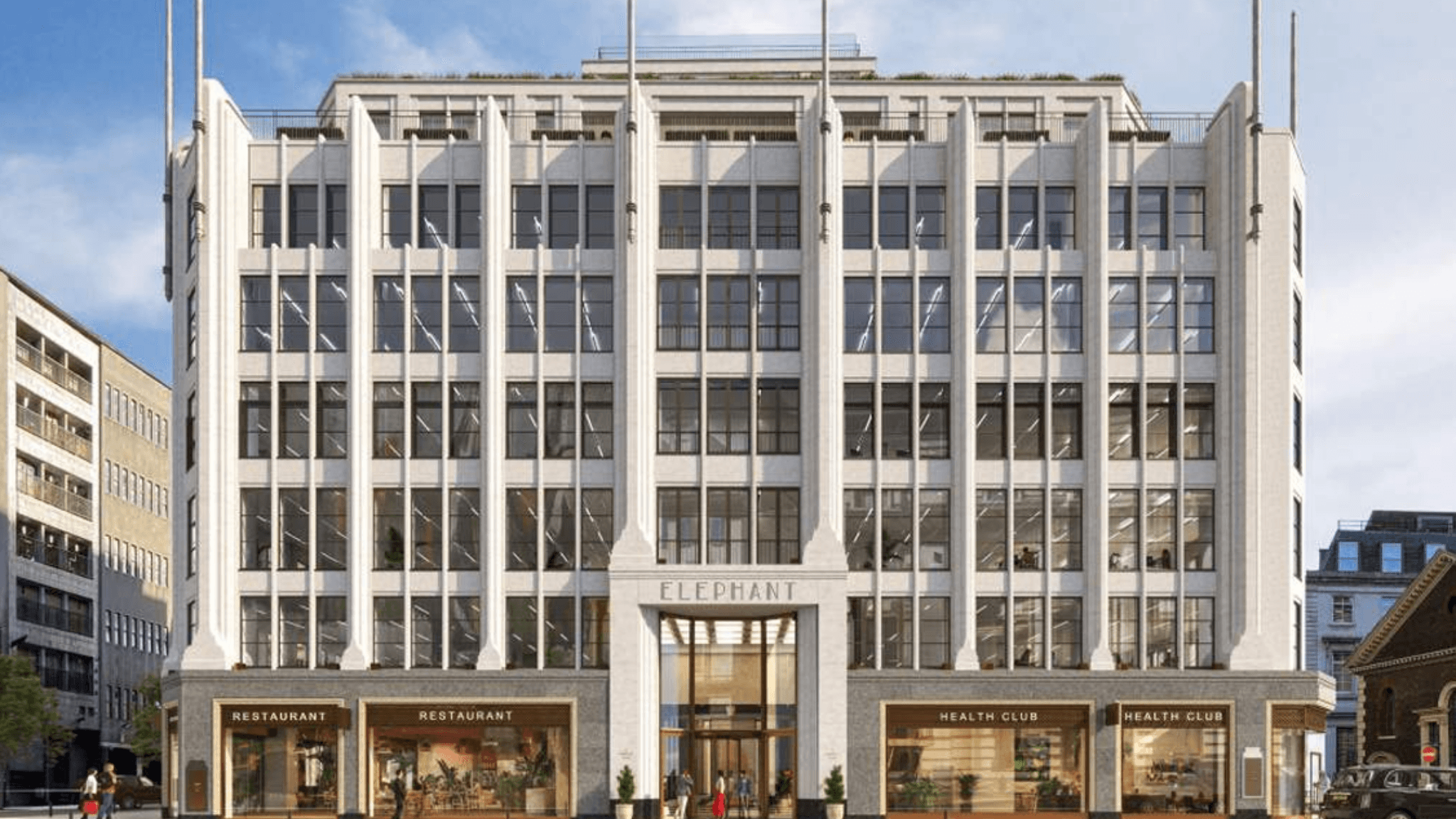Futures trading: A way to scale-up the re-use of building materials
Aug 29, 2024








A way to scale-up the re-use of building materials
Tina Paillet Co-founder Circotrade and President Elect at RICS shares her viewpoint from our Circular London report, exploring the re-use of building materials.
The materials in existing buildings are full of untapped latent potential which is mostly overlooked and unrecognised. Standard industry practice puts a disproportionate value on new resources while disregarding the existing resources in buildings, seeing them as eventual waste and therefore a problem and a future expense.
Less than 1 per cent of a buildings materials are reused at the end of their useful life and the built environment has a profound impact on the planet:
The worldwide construction and building industry has an outsized impact on climate change (40 per cent of CO² emissions), our dwindling stock of finite resources (using 50 per cent of primary resources), and waste production (over a third of all waste streams).Globally, we continue to build a city the size of Paris each week and will do so until 2040. Building anything costs embodied carbon.Embodied carbon represents between 50–70 per cent of the Whole Life Cycle Carbon of a building. This portion of the carbon budget is used upfront and the climate clock is ticking.
Reusing the materials contained within existing buildings is key to decarbonization, but first building owners need the tools to unlock the potential in their portfolios to get them onto the path of the circular economy.
Circotrade is a B2B digital trading platform which is specifically developed to tackle the barriers to re-use in the construction and property industry and to attain critical mass for this new asset class.
We encourage the uptake of re-used materials in 3 steps:
Circoscan – Creation of a digital model listing an existing building’s materials. We deploy market leading inventory technology and re-use inventory specialist teams;Circopass – Valuing the building’s circular & carbon footprint according to internationally recognized methodology. We provide third party certification to support extra financial reporting; Circotrade - A technologically enabled marketplace to facilitate futures trading of a building’s materials and embodied carbon via an innovative futures contract and matching service - long before any of these materials and products are actually slated for deconstruction.
Why a Futures Market? The benefits for both buyers and sellers are four-fold:
Forward planning: buyers and sellers can plan ahead and lock in quantities and prices for future transactions. Development teams have access to an online “supermarket” of future reused materials allowing teams to design to specification and to scale with certainty.Visibility: provides transparency and visibility into market trends, volumes and provenance of materials to be released in the future and price movements. Supporting the financial burden: making it easier for companies to invest in the recovery, reconditioning, recertification of materials, as they can accurately predict their costs and revenues.Market efficiency: By providing a platform for buyers and sellers to come together and trade in a standardized way, futures trading can help increase liquidity and reduce price disparities.
With Circotrade, the power of finance unlocks the hidden value laying dormant in existing buildings’ materials and products.
Circotrade: Helping the built environment help the planet by extracting environmental, social and financial value from previously disregarded building materials by planning for their future re-use.
Circotrade is part of the Ellen MacArthur Foundation community.
A way to scale-up the re-use of building materials
Tina Paillet Co-founder Circotrade and President Elect at RICS shares her viewpoint from our Circular London report, exploring the re-use of building materials.
The materials in existing buildings are full of untapped latent potential which is mostly overlooked and unrecognised. Standard industry practice puts a disproportionate value on new resources while disregarding the existing resources in buildings, seeing them as eventual waste and therefore a problem and a future expense.
Less than 1 per cent of a buildings materials are reused at the end of their useful life and the built environment has a profound impact on the planet:
The worldwide construction and building industry has an outsized impact on climate change (40 per cent of CO² emissions), our dwindling stock of finite resources (using 50 per cent of primary resources), and waste production (over a third of all waste streams).Globally, we continue to build a city the size of Paris each week and will do so until 2040. Building anything costs embodied carbon.Embodied carbon represents between 50–70 per cent of the Whole Life Cycle Carbon of a building. This portion of the carbon budget is used upfront and the climate clock is ticking.
Reusing the materials contained within existing buildings is key to decarbonization, but first building owners need the tools to unlock the potential in their portfolios to get them onto the path of the circular economy.
Circotrade is a B2B digital trading platform which is specifically developed to tackle the barriers to re-use in the construction and property industry and to attain critical mass for this new asset class.
We encourage the uptake of re-used materials in 3 steps:
Circoscan – Creation of a digital model listing an existing building’s materials. We deploy market leading inventory technology and re-use inventory specialist teams;Circopass – Valuing the building’s circular & carbon footprint according to internationally recognized methodology. We provide third party certification to support extra financial reporting; Circotrade - A technologically enabled marketplace to facilitate futures trading of a building’s materials and embodied carbon via an innovative futures contract and matching service - long before any of these materials and products are actually slated for deconstruction.
Why a Futures Market? The benefits for both buyers and sellers are four-fold:
Forward planning: buyers and sellers can plan ahead and lock in quantities and prices for future transactions. Development teams have access to an online “supermarket” of future reused materials allowing teams to design to specification and to scale with certainty.Visibility: provides transparency and visibility into market trends, volumes and provenance of materials to be released in the future and price movements. Supporting the financial burden: making it easier for companies to invest in the recovery, reconditioning, recertification of materials, as they can accurately predict their costs and revenues.Market efficiency: By providing a platform for buyers and sellers to come together and trade in a standardized way, futures trading can help increase liquidity and reduce price disparities.
With Circotrade, the power of finance unlocks the hidden value laying dormant in existing buildings’ materials and products.
Circotrade: Helping the built environment help the planet by extracting environmental, social and financial value from previously disregarded building materials by planning for their future re-use.
Circotrade is part of the Ellen MacArthur Foundation community.
A way to scale-up the re-use of building materials
Tina Paillet Co-founder Circotrade and President Elect at RICS shares her viewpoint from our Circular London report, exploring the re-use of building materials.
The materials in existing buildings are full of untapped latent potential which is mostly overlooked and unrecognised. Standard industry practice puts a disproportionate value on new resources while disregarding the existing resources in buildings, seeing them as eventual waste and therefore a problem and a future expense.
Less than 1 per cent of a buildings materials are reused at the end of their useful life and the built environment has a profound impact on the planet:
The worldwide construction and building industry has an outsized impact on climate change (40 per cent of CO² emissions), our dwindling stock of finite resources (using 50 per cent of primary resources), and waste production (over a third of all waste streams).Globally, we continue to build a city the size of Paris each week and will do so until 2040. Building anything costs embodied carbon.Embodied carbon represents between 50–70 per cent of the Whole Life Cycle Carbon of a building. This portion of the carbon budget is used upfront and the climate clock is ticking.
Reusing the materials contained within existing buildings is key to decarbonization, but first building owners need the tools to unlock the potential in their portfolios to get them onto the path of the circular economy.
Circotrade is a B2B digital trading platform which is specifically developed to tackle the barriers to re-use in the construction and property industry and to attain critical mass for this new asset class.
We encourage the uptake of re-used materials in 3 steps:
Circoscan – Creation of a digital model listing an existing building’s materials. We deploy market leading inventory technology and re-use inventory specialist teams;Circopass – Valuing the building’s circular & carbon footprint according to internationally recognized methodology. We provide third party certification to support extra financial reporting; Circotrade - A technologically enabled marketplace to facilitate futures trading of a building’s materials and embodied carbon via an innovative futures contract and matching service - long before any of these materials and products are actually slated for deconstruction.
Why a Futures Market? The benefits for both buyers and sellers are four-fold:
Forward planning: buyers and sellers can plan ahead and lock in quantities and prices for future transactions. Development teams have access to an online “supermarket” of future reused materials allowing teams to design to specification and to scale with certainty.Visibility: provides transparency and visibility into market trends, volumes and provenance of materials to be released in the future and price movements. Supporting the financial burden: making it easier for companies to invest in the recovery, reconditioning, recertification of materials, as they can accurately predict their costs and revenues.Market efficiency: By providing a platform for buyers and sellers to come together and trade in a standardized way, futures trading can help increase liquidity and reduce price disparities.
With Circotrade, the power of finance unlocks the hidden value laying dormant in existing buildings’ materials and products.
Circotrade: Helping the built environment help the planet by extracting environmental, social and financial value from previously disregarded building materials by planning for their future re-use.
Circotrade is part of the Ellen MacArthur Foundation community.
A way to scale-up the re-use of building materials
Tina Paillet Co-founder Circotrade and President Elect at RICS shares her viewpoint from our Circular London report, exploring the re-use of building materials.
The materials in existing buildings are full of untapped latent potential which is mostly overlooked and unrecognised. Standard industry practice puts a disproportionate value on new resources while disregarding the existing resources in buildings, seeing them as eventual waste and therefore a problem and a future expense.
Less than 1 per cent of a buildings materials are reused at the end of their useful life and the built environment has a profound impact on the planet:
The worldwide construction and building industry has an outsized impact on climate change (40 per cent of CO² emissions), our dwindling stock of finite resources (using 50 per cent of primary resources), and waste production (over a third of all waste streams).Globally, we continue to build a city the size of Paris each week and will do so until 2040. Building anything costs embodied carbon.Embodied carbon represents between 50–70 per cent of the Whole Life Cycle Carbon of a building. This portion of the carbon budget is used upfront and the climate clock is ticking.
Reusing the materials contained within existing buildings is key to decarbonization, but first building owners need the tools to unlock the potential in their portfolios to get them onto the path of the circular economy.
Circotrade is a B2B digital trading platform which is specifically developed to tackle the barriers to re-use in the construction and property industry and to attain critical mass for this new asset class.
We encourage the uptake of re-used materials in 3 steps:
Circoscan – Creation of a digital model listing an existing building’s materials. We deploy market leading inventory technology and re-use inventory specialist teams;Circopass – Valuing the building’s circular & carbon footprint according to internationally recognized methodology. We provide third party certification to support extra financial reporting; Circotrade - A technologically enabled marketplace to facilitate futures trading of a building’s materials and embodied carbon via an innovative futures contract and matching service - long before any of these materials and products are actually slated for deconstruction.
Why a Futures Market? The benefits for both buyers and sellers are four-fold:
Forward planning: buyers and sellers can plan ahead and lock in quantities and prices for future transactions. Development teams have access to an online “supermarket” of future reused materials allowing teams to design to specification and to scale with certainty.Visibility: provides transparency and visibility into market trends, volumes and provenance of materials to be released in the future and price movements. Supporting the financial burden: making it easier for companies to invest in the recovery, reconditioning, recertification of materials, as they can accurately predict their costs and revenues.Market efficiency: By providing a platform for buyers and sellers to come together and trade in a standardized way, futures trading can help increase liquidity and reduce price disparities.
With Circotrade, the power of finance unlocks the hidden value laying dormant in existing buildings’ materials and products.
Circotrade: Helping the built environment help the planet by extracting environmental, social and financial value from previously disregarded building materials by planning for their future re-use.
Circotrade is part of the Ellen MacArthur Foundation community.



